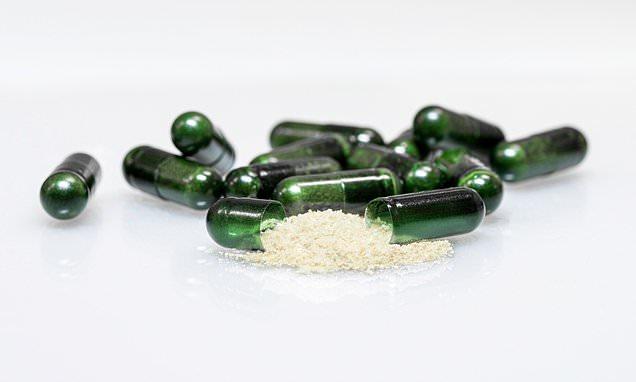(Beyond Pesticides, November 15, 2023) A study previously published in the Federation of American Societies for Experimental Biology (FASEB) is drawing renewed attention to the gut microbiome in the scientific community. The study, involving a team including Demetrio Sierra-Mercado, PhD, of the University of Puerto Rico School of Medicine, initially established a link between glyphosate exposure and increased anxiety and fear-related behavior in rats. Glyphosate, a widely-used herbicide, has been detected in trace amounts in fruits, vegetables, grains, and other food and beverages, according to the U.S. Environmental Protection Agency (EPA). Originally deemed safe for humans due to the way it interacts with the shikimic acid pathwayâa metabolic route that is absent in humansâglyphosate’s indirect effects on human health are now under scrutiny as the research linking it to anxiety-like behavior grows.Â
Dr. Sierra-Mercadoâs team is expanding on his previous research to take a closer look at the compound’s potential disruption of the gut microbiome, which plays a pivotal role in regulating both physical and mental health. His upcoming study, anticipated in August 2024, aims to delve into the intricate relationship between glyphosate exposure and the gut-brain axis, with a focus on how this may influence neurological and emotional health in humans. This investigation is critical as it prompts the world to rethink the initial toxicity assessments of glyphosate, accounting for a broader scope on the internal systems that the pesticide affects. Â
This research emerges as the impacts of glyphosate consumption become clearer with decades of accumulated studies. In recent years, numerous lawsuits have targeted Monsanto (now Bayer), producer of RoundUp, which contains glyphosate, alleging that the herbicide contributes to the plaintiffs’ cancers. Moreover, the International Agency for Research on Cancer has classified the chemical as a probable carcinogen. Concurrently, research links the chemical to increased rates of toxic body burden, noting adolescents have higher bodily concentrations of glyphosate than adults. An article by Beyond Pesticides spotlights the study finding that over 90% of participants, including many child/parent pairs, had recent exposure to glyphosate, with children often showing up to four times the glyphosate levels of their parents. This corroborates evidence that children may be more vulnerable to the chemical’s risks. Additionally, an extensive 15-year study associates high rates of childhood blood cancers with children living in Brazil’s soy-growing areasâregions that rely on intensive glyphosate inputs. Therefore, comprehending the full spectrum of glyphosate’s effects on human health, from its potential carcinogenicity to its neurological and emotional ramifications, is crucial, advocates say.
As part of Dr. Sierra-Mercado’s revealing insights at the September 25 Keystone Science Lecture, part of the multi-day workshop and lecture series at the National Institute of Environmental Health Sciences (NIEHS), the extended research on glyphosateâs impact on behavior has gained substantial depth. In his lecture, Dr. Sierra-Mercado presented findings from his team’s rigorous investigation into the effects of prolonged oral exposure to glyphosate, a chemical the EPA has previously deemed safe for humans at a daily exposure rate of 2.0 mg/kg over a lifetime. The team administered glyphosate-contaminated water at the EPAâs accepted safe dose, with control rats receiving filtered drinking water. No initial behavioral changes were noted after four weeks of exposure, as determined by an open field test. However, the narrative changed with prolonged exposure. After 14 weeks, the rats displayed significant anxiety-like behaviors, with a pronounced decrease in time spent exploring novel objects and a marked increase in threat response to new stimuli, which could indicate heightened anxiety or negative anticipation. Additionally, Dr. Sierra-Mercado noted increased cellular activity in the bed nucleus of the stria terminalis (BNST), a brain region associated with anxietyâa physiological marker that demonstrates glyphosateâs potential effect on neural pathways. Further highlighting the biological impact, a notable decrease in Lactobacillus in the feces was observed, pointing to glyphosate’s disruption of gut bacteria. This is significant due to the role of Lactobacillus in serotonin production, often referred to as the body’s “feel-good” hormone.
The research from Dr. Sierra-Mercado and his team demonstrates the intricate interplay between glyphosate consumption and the gut-brain axis, highlighting how even levels deemed safe can lead to anxiety-like behaviors and alter the delicate balance of gut microbiota. These disruptions may instigate a series of events culminating in emotional dysregulation, suggesting that if the research is applicable to all mammals, glyphosateâs safety must be reassessed in light of its broader biological impacts.
This study is the first of its kind to understand the connections between glyphosate exposure and gut health. It, along with an ongoing surge of new research into the impacts of pesticide exposure, highlights the significant gaps in the global scientific community’s understanding of these chemicals, particularly their long-term implications. The susceptibility of children to glyphosate, with their higher propensity for absorption and retention, is especially concerning. The possibility that even regulated levels of exposure may harbor unacknowledged dangers necessitates a more cautious approach to such chemicals.
Despite the mounting research and remaining uncertainties, EPA’s stance on glyphosate remains firm. The agency continues to classify the chemical as ânot likely to be carcinogenic to humans,â authorizing its ongoing use. This stance is at odds with the advancing scientific conversation, indicating a concerning gap between science and regulation. Â
Amidst these concerns, Beyond Pesticides encourages safer, organic alternatives and offers resources for those looking to reduce their exposure to glyphosate and other pesticides. The Beyond Pesticides website provides accessible information and tools for individuals and communities to make healthier choices and adopt organic land management practices. Visit to learn more and to join the movement towards a healthier, more sustainable future.
All unattributed positions and opinions in this piece are those of Beyond Pesticides.
This content was originally published here.




















